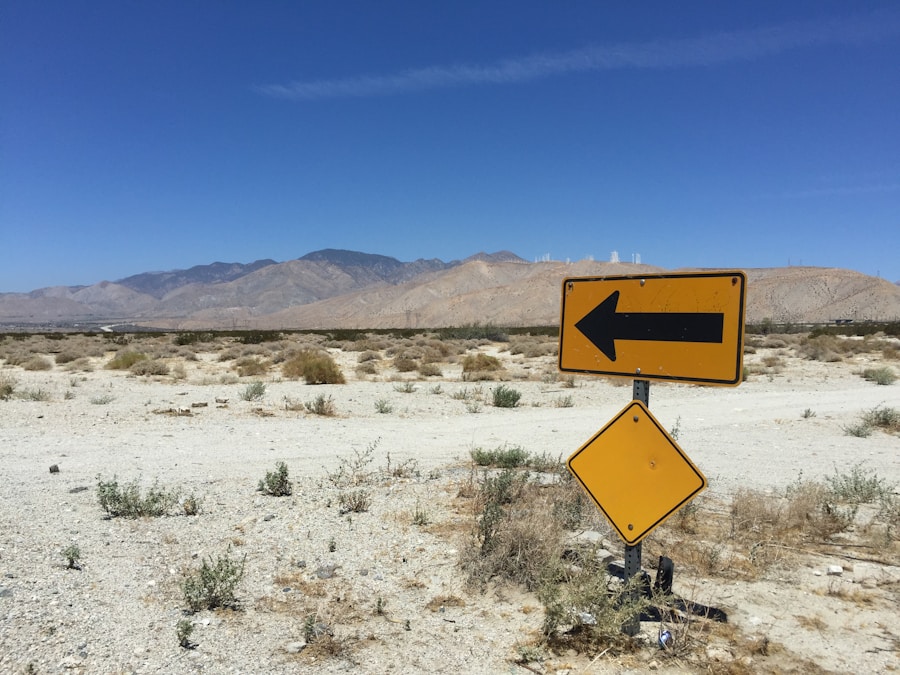Nevada Question 3, also known as the Energy Choice Initiative, is a significant measure that aims to transform the state’s energy landscape by allowing consumers to choose their electricity providers. This initiative was put forth to give Nevadans the power to select from a variety of energy suppliers, rather than being limited to a single utility company. The underlying premise is to foster competition in the energy market, which proponents argue could lead to lower prices and improved services for consumers.
By enabling this choice, Nevada seeks to align itself with other states that have embraced energy deregulation, thereby potentially enhancing innovation and efficiency in energy delivery. The initiative gained traction as a response to growing concerns about rising energy costs and the desire for more sustainable energy options. Advocates believe that deregulation could stimulate investment in renewable energy sources, as new entrants in the market would be incentivized to offer cleaner alternatives.
However, the measure has also faced criticism and skepticism from various stakeholders, including established utility companies and consumer advocacy groups. They argue that deregulation could lead to market instability and may not guarantee the promised benefits of lower prices or improved service quality. As Nevada navigates this pivotal moment in its energy policy, the implications of Question 3 will be felt across the state for years to come.
Key Takeaways
- Nevada Question 3 is a ballot initiative that aims to deregulate the state’s energy market, allowing consumers to choose their energy provider.
- Pros of energy deregulation include potential cost savings, increased competition, and more options for renewable energy sources.
- Cons of energy deregulation include potential price volatility, lack of consumer protections, and potential negative impact on renewable energy development.
- Energy deregulation could potentially lead to lower energy prices for consumers, but it also carries the risk of price spikes and instability.
- Deregulation may lead to increased investment in renewable energy development, as consumers demand more sustainable energy options.
The Pros and Cons of Energy Deregulation
Energy deregulation presents a complex array of advantages and disadvantages that warrant careful consideration. On one hand, one of the most compelling arguments in favor of deregulation is the potential for increased competition among energy providers. When consumers have the freedom to choose their electricity suppliers, it can lead to a more dynamic market where companies strive to offer better rates and services.
This competition can drive innovation, as providers seek to differentiate themselves through renewable energy options, customer service enhancements, and technological advancements. Ultimately, this could result in lower prices for consumers who are empowered to shop around for the best deals. Conversely, there are significant concerns associated with deregulation that cannot be overlooked.
Critics argue that a competitive market may not always lead to lower prices, especially if there are barriers to entry for new companies or if market manipulation occurs. Additionally, deregulation can create uncertainty in energy supply and pricing, which may disproportionately affect vulnerable populations who may struggle to navigate the complexities of choosing an energy provider. Furthermore, there is a risk that essential services could become fragmented, leading to gaps in service quality or reliability.
As you weigh the pros and cons of energy deregulation, it’s crucial to consider how these factors might impact your own experience as a consumer.
Potential Impact on Energy Prices

The potential impact of Nevada Question 3 on energy prices is a topic of considerable debate among economists, policymakers, and consumers alike. Proponents of deregulation argue that increased competition will naturally drive prices down as suppliers vie for your business. In theory, when multiple companies are competing for your attention, they will be incentivized to offer more attractive pricing structures and innovative plans tailored to your needs.
This could lead to a more favorable pricing environment where you can benefit from lower rates and more flexible options. However, the reality of energy pricing in a deregulated market can be more complicated than it appears on the surface. While competition has the potential to lower prices, it can also lead to price volatility, particularly if there are fluctuations in supply and demand or if external factors—such as natural disasters or geopolitical events—impact energy availability.
Additionally, some experts warn that without proper regulatory oversight, companies may engage in predatory pricing practices or create complex pricing structures that confuse consumers. As you consider how deregulation might affect your energy costs, it’s essential to stay informed about market trends and be prepared for potential fluctuations in your monthly bills.
Effects on Renewable Energy Development
| Country | Renewable Energy Capacity (MW) | Investment in Renewable Energy (USD) | Jobs Created in Renewable Energy Sector |
|---|---|---|---|
| United States | 122,340 | 55 billion | 769,000 |
| China | 281,510 | 83 billion | 3.64 million |
| Germany | 114,820 | 14 billion | 338,600 |
| India | 94,760 | 9.7 billion | 416,000 |
One of the most promising aspects of Nevada Question 3 is its potential to accelerate the development of renewable energy sources within the state. By fostering a competitive marketplace, deregulation could encourage new entrants focused on clean energy solutions to emerge. This shift could lead to increased investment in solar, wind, and other renewable technologies as companies seek to attract environmentally conscious consumers who prioritize sustainability in their energy choices.
As a result, you may find yourself with more options for green energy plans that align with your values and contribute to a cleaner environment. However, the transition to a deregulated market does not come without challenges for renewable energy development. Established utility companies may resist changes that threaten their traditional business models, potentially leading to pushback against new entrants focused on renewables.
Additionally, without adequate regulatory frameworks in place, there is a risk that renewable projects could face hurdles related to grid access or interconnection standards. As you consider the implications of deregulation on renewable energy development, it’s important to advocate for policies that support sustainable practices while ensuring that all consumers have access to clean energy options.
Impact on Consumer Choice and Competition
The introduction of Nevada Question 3 has the potential to significantly enhance consumer choice in the energy market. With multiple providers vying for your business, you will have the opportunity to select an electricity supplier that best meets your needs and preferences. This newfound freedom can empower you as a consumer, allowing you to prioritize factors such as price, service quality, and sustainability when making your decision.
The ability to switch providers easily can also encourage companies to improve their offerings continually, fostering an environment where customer satisfaction is paramount. However, while increased choice can be beneficial, it can also lead to confusion and overwhelm for some consumers. The complexity of comparing different plans and understanding various pricing structures may deter individuals from fully engaging with the market.
Additionally, not all consumers may have equal access to information or resources needed to make informed decisions about their energy providers. As you navigate this new landscape of consumer choice, it’s essential to educate yourself about your options and seek out resources that can help simplify the decision-making process.
Potential Risks and Challenges

Risks of Market Exploitation
One significant concern is the possibility of market manipulation or exploitation by unscrupulous providers seeking to maximize profits at the expense of consumers. Without robust regulatory oversight, there is a risk that some companies may engage in deceptive practices or fail to deliver on their promises regarding pricing or service quality.
Ensuring Equitable Access to Energy Services
Another challenge lies in ensuring equitable access to energy services for all residents of Nevada. Vulnerable populations may face barriers when navigating a deregulated market, particularly if they lack access to information or resources needed to make informed choices about their energy providers. Additionally, there is a risk that essential services could become fragmented or unreliable if competition leads to a focus on profit over service quality.
Prioritizing Consumer Protection
As you consider the potential risks associated with deregulation, it’s crucial to advocate for policies that prioritize consumer protection and ensure that all Nevadans can benefit from a competitive energy market.
Lessons from Other States with Deregulated Energy Markets
Examining the experiences of other states that have implemented energy deregulation can provide valuable insights into what Nevada might expect as it embarks on this journey. States like California and Texas have undergone significant changes in their energy markets over the years, offering both cautionary tales and success stories for Nevada’s policymakers and consumers alike. In Texas, for example, deregulation has led to a vibrant marketplace with numerous options for consumers; however, it has also resulted in price volatility and concerns about grid reliability during extreme weather events.
Conversely, California’s experience with deregulation has been marked by challenges related to market manipulation and rising prices for consumers. The state’s struggles during the early 2000s serve as a reminder of the importance of implementing strong regulatory frameworks alongside deregulation efforts. As you reflect on these lessons from other states, consider how Nevada can learn from both successes and failures in order to create a more resilient and equitable energy market.
Steps for Consumers to Prepare for Energy Deregulation
As Nevada moves toward implementing Question 3 and embracing energy deregulation, it’s essential for you as a consumer to take proactive steps in preparing for this transition. Start by educating yourself about how deregulation works and what it means for your electricity choices. Familiarize yourself with different types of energy plans available in a competitive market—such as fixed-rate plans versus variable-rate plans—and consider which options align best with your budget and lifestyle.
Additionally, keep an eye on developments related to regulatory frameworks that will govern the new market landscape. Understanding your rights as a consumer will empower you to make informed decisions when selecting an electricity provider. Finally, consider joining local advocacy groups or community organizations focused on energy issues; these groups can provide valuable resources and support as you navigate this new terrain.
By taking these steps now, you can position yourself for success in an evolving energy marketplace while ensuring that your voice is heard in shaping Nevada’s energy future.
